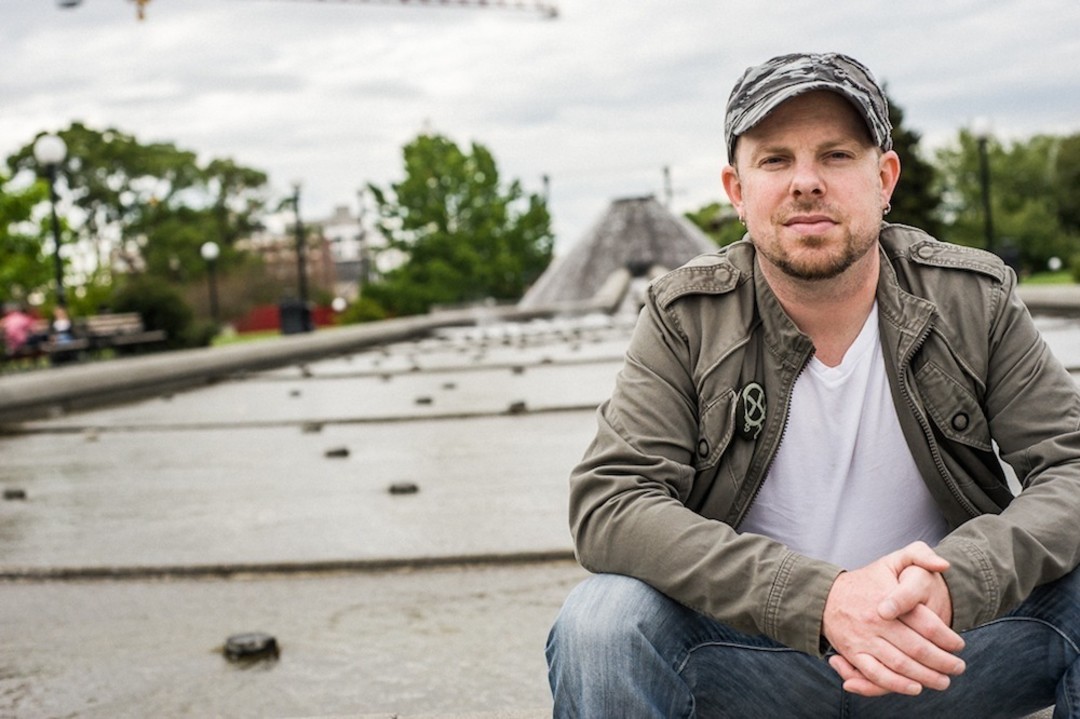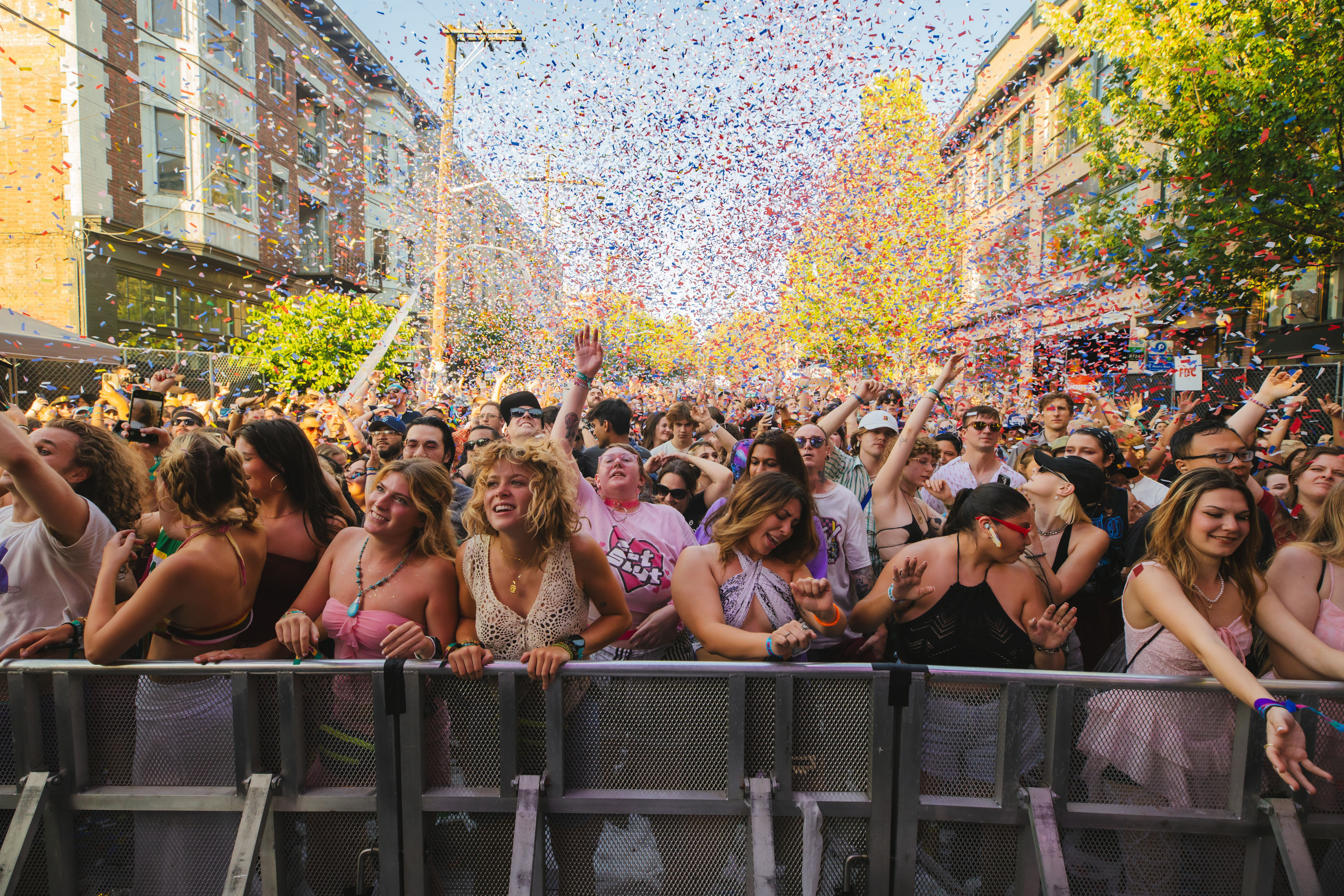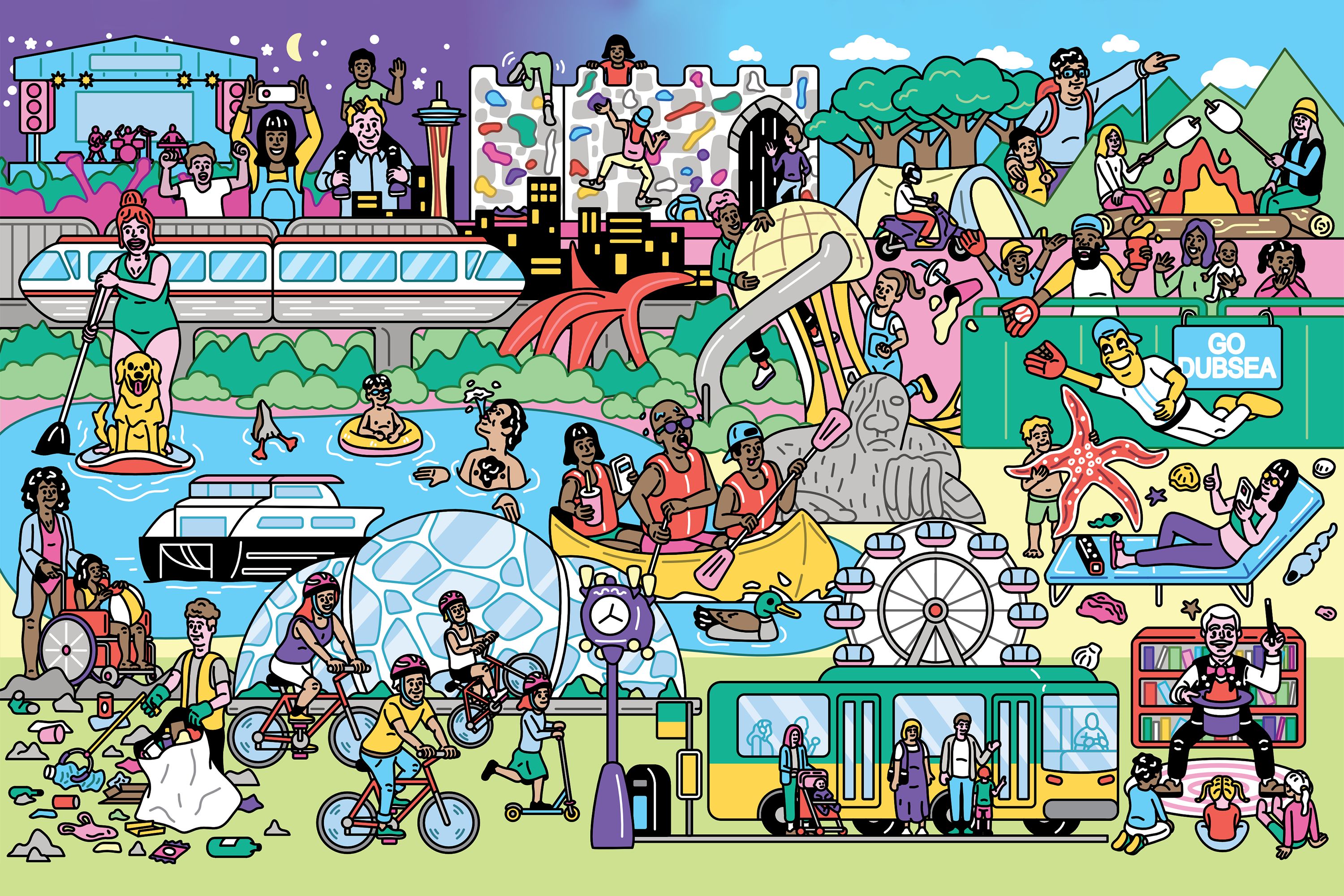A Fiendish Conversation with Decibel Festival's Sean Horton

Image: Photo Courtesy Bob Hansen
In the past few years electronic music has shed its niche label and reached a new level of popularity. Just look at Bumbershoot. The last two years have seen Skrillex and Bassnectar headlining alongside musical stalwarts like Tony Bennett and Heart. This week, Decibel Festivial–Seattle's preeminent electronic music event–marks a decade of bringing the Northwest a diverse palate of the genre's hottest sounds. When Sean Horton founded Decibel in 2004, it was an underground collection of electronic music fanatics, but the fest has grown in popularity along with the genre. This year's lineup features Moby, Nicholas Jarr, the Orb, Shabazz Palaces and the Helio Sequence, and dozens of other performers spread across town over the course of five wild nights (Sept 25–29).
For our latest Fiendish Conversation, we chatted with Horton about the rise of electronic music, the three main players in the EDM boom, and getting married at Decibel Festival.
How has Decibel Festival changed in 10 years?
The immediate change that I can point to is the sheer size. In the first year, back in 2004 we had just over 2,500 people. This year our goal is to get to 30,000. So just a dramatic increase in attendance. The format’s very similar though: we’ve always been a club-based festival, we’ve always focused on various forms of underground and emerging electronic music. I do think that from a program standpoint—as curator—I have had to make some programming decisions that did bring in some larger, more well known artists as well. This year we’ve got Moby, or Flosstradamus, or Lorde. I’d say in our infancy there just wouldn’t have been budget and/or audience that would’ve worked for those kind of curatorial decisions.
As a curator what are the things you look for when you setting up the lineup for the festival?
For me it’s a wide net that I cast, because we are doing so many different styles of music. Everything from hip hop to electopop to techno and house to dubstep. I generally look for a few things. One, it’s important for me, someone who’s been listening to electronic music since the late ‘80s, that I always try to inject music that has a bit of a historical perspective. This year I’d say like Moby, Juan Atkins, Speedy J, these are all artists I grew up listening to in the early '90s. So paying homage to the historical perspective that electronic music’s had on my life is key. On the flip side of that, we have a lot of emerging artists: say, artists like Ryan Hemsworth, Cyril Hahn, and Lorde; artists that are really just starting to become known to a wider audience. Decibel’s always been about breaking new talent, and keeping my ear to the ground for new sounds, new artists.
I also think that, as a performance based festival, it’s really focused on live performance as opposed to DJing. I think this year about 70 percent of our lineup is live music. For me, finding someone who can move an audience and perform well is crucial. Nothing’s more awkward than a headliner who gets up there and just basically stares at his screen, doesn’t move, doesn’t acknowledge the audience, and really doesn’t have that personality it takes to keep people engaged.
Are there specific things on this year’s lineup you’re looking forward to?
We’ve been trying for the past five years now to get Nicolas Jarr to Seattle. I first heard about him from a friend; at the time he was kind of just starting out in New York, he was only 17 and was getting ready to go into college. And really we kind of had to wait out his college degree to get him. He graduated last year and finally we were able to bring him to Seattle to do what I think is his Northwest debut performance.
I’m very excited about Lorde, who’s a 16-year-old singer songwriter from New Zealand. Her show for Decibel sold out in two days and I see her being potentially one of the great pop icons of the next ten years. Her music is incredibly pure, has a unique sound, there’s no one else I can even use to describe her sound. I would imagine even a year from now she’s going to be selling out venues like WaMu Theater.
Which up-and-coming local electronic artists should people keep an eye on?
Artists in particular from the Northwest that I really hold in high regard are Natasha Kmeto, Kid Smpl, J. Alvarez, the Sight Below. These are all very unique artists, they all have their own sound and really aren’t doing anything even remotely similar to other contemporary artists. I think that Beat Connection is poised for success and has already started to pave its way for— I think—stardom. I think Vox Mod is another artist that really understands not only the importance of creating unique content from a musical perspective, but from a performance standpoint really likes to incorporate visual art and live musicians into his set.
With artists like Deadma5 and Skrillex gaining mainstream recognition, how do you feel the public perception of electronic music has changed over the past 10 years?
When we started Decibel back in 2003-2004, electronic music was really at a lull. I do feel though the past two years in particular there’s been a large influx of 18-24 year olds that are just now discovering electronic music. And obviously they’re connected to the EDM sort-of craze, that I’m sure everyone’s aware of. To your point, artists like Deadmau5 and Skrillex have really set the stage for what is arguably the biggest music subculture the world’s ever seen. I think ultimately the biggest change though is that when we started our audience was predominantly in its thirties, maybe early forties. It was an older audience; I was actually older than our core audience. Now it’s the opposite, I’m actually older than our core audience, and I’m seeing an increase in younger audience. And really to me, that points to the future not only of electronic music, but of Decibel.
Do you have any theories as to why there has been this boom of 18-24 year old electronic music fans?
Absolutely, and much of it has to do with the West Coast. There’s really three artists I think you can point to, three North American artists, that in my opinion capture each of the three different main factions of EDM. Deadmau5 really came onto the scene in mid-2000s and launched really what was known after a long time as electrohouse. The popularity of electrohouse grew internationally, and sort of became the early stages of EDM as we know it today really began with him.
You can also point to Skrillex, who was first released by Deadmau5’s label, mau5trap. Skrillex’s first EP came out on that and his first tour was opening up for Deadmau5. So those two guys are kind of inexplicably tied together. But Skrillex took it in a different direction; Skrillex took it in a direction that appealed to the youth angst, what would be the equivalent of heavy metal or rock. He was able to embrace that sort of teen angst that was sort of missing in the electronic music world, and that was essential. So now you have essentially this group of club goers that are kind of connected more to a European style of music, electrohouse, that are already sort of discovering that through Deadmau5. You have a whole other faction of people that probably think Deadmau5’s music is lame that are discovering Skrillex because it’s aggressive and almost in a way kind of recreating metal.
The third and arguably the most vital component is that of Burning Man and the emergence of the West Coast festival culture scene. And the unequivocable personality of that is an artist by the name of Bassnecter, who just headlined at Bumbershoot. What Bassnecter did was he brought electronic music—and all various forms of it—from hip hop, to glitch, to dubstep—to sort of the hippie faction which up until that point these are people who probably would’ve been touring with The Grateful Dead or Phish or any other number of jam bands. He kind of made it ok for hippies to embrace electronic music. And unlike Deadmau5’s scene and Skrillex’s scene, Bassnecter has this very earthy and holistic approach to growing his brands. And he’s arguably the most successful of the three, because unlike Deadmau5 and Skrillex he does not have major label support, he does not have MTV pushing his music, he’s done it organically. If you look at the past decade of EDM in North America, really those are the three most important artists. All of which embraced a completely unique audience. You combine all of those audiences together and that is a huge amount of people that are listening to electronic music in some form.
Are there any standout moments over the Decibel’s history you remember as amazing?
I would say number one was getting married at the 2009 festival. We actually hijacked what we call one of the optical showcases, came in early and invited all of our friends and family out, and actually got married as part of the festival. And the DB in the Park event, one of our favorite free events that we do every Saturday during the festival, that was our wedding reception. And seeing my friends, family, coworkers, artists, fans, everybody coming together for the wedding for that event in particular was very special.
Decibel Festival
Sept 25–29, Various venues, $250 (festival pass); $15–$35 (individual tickets)




